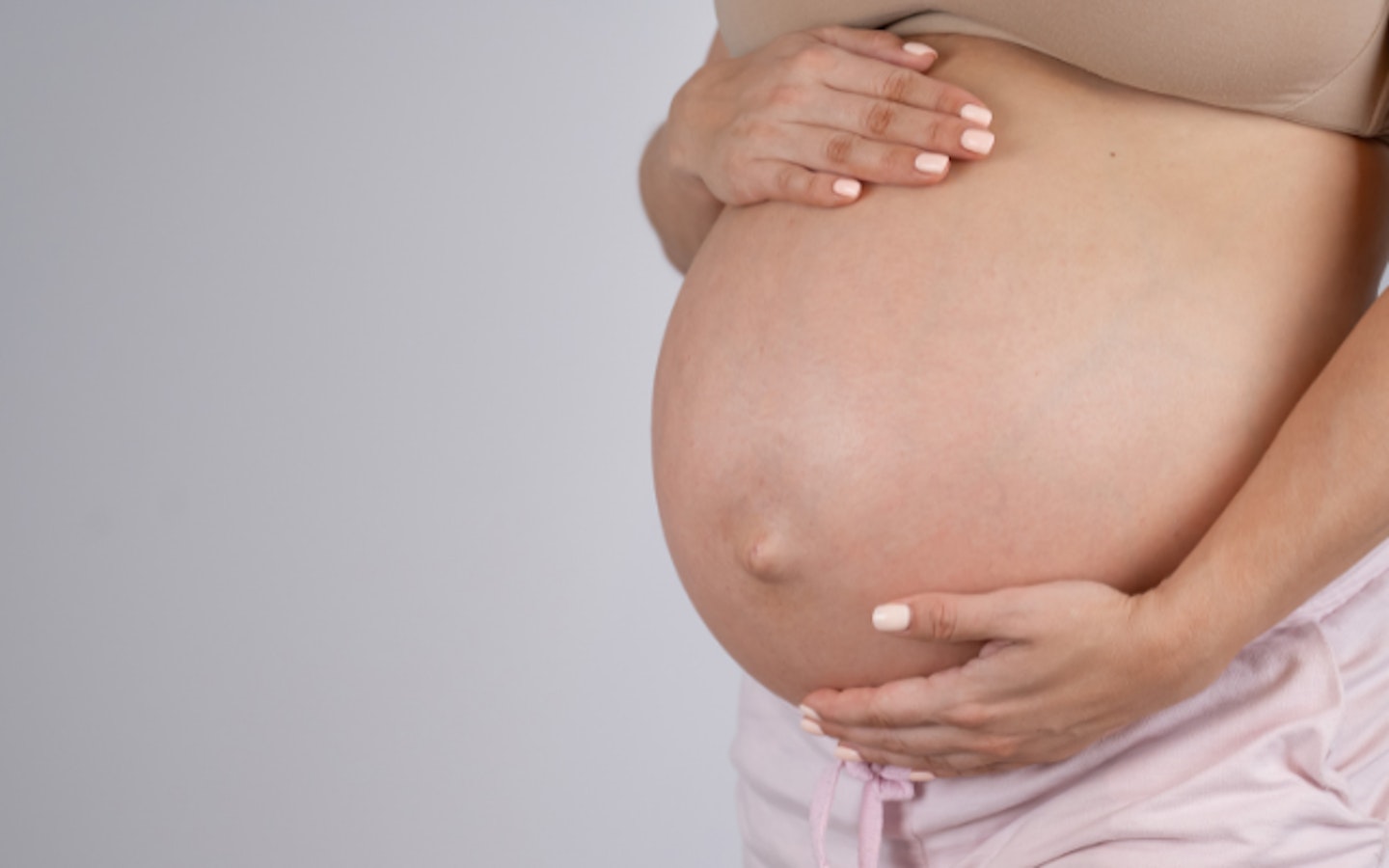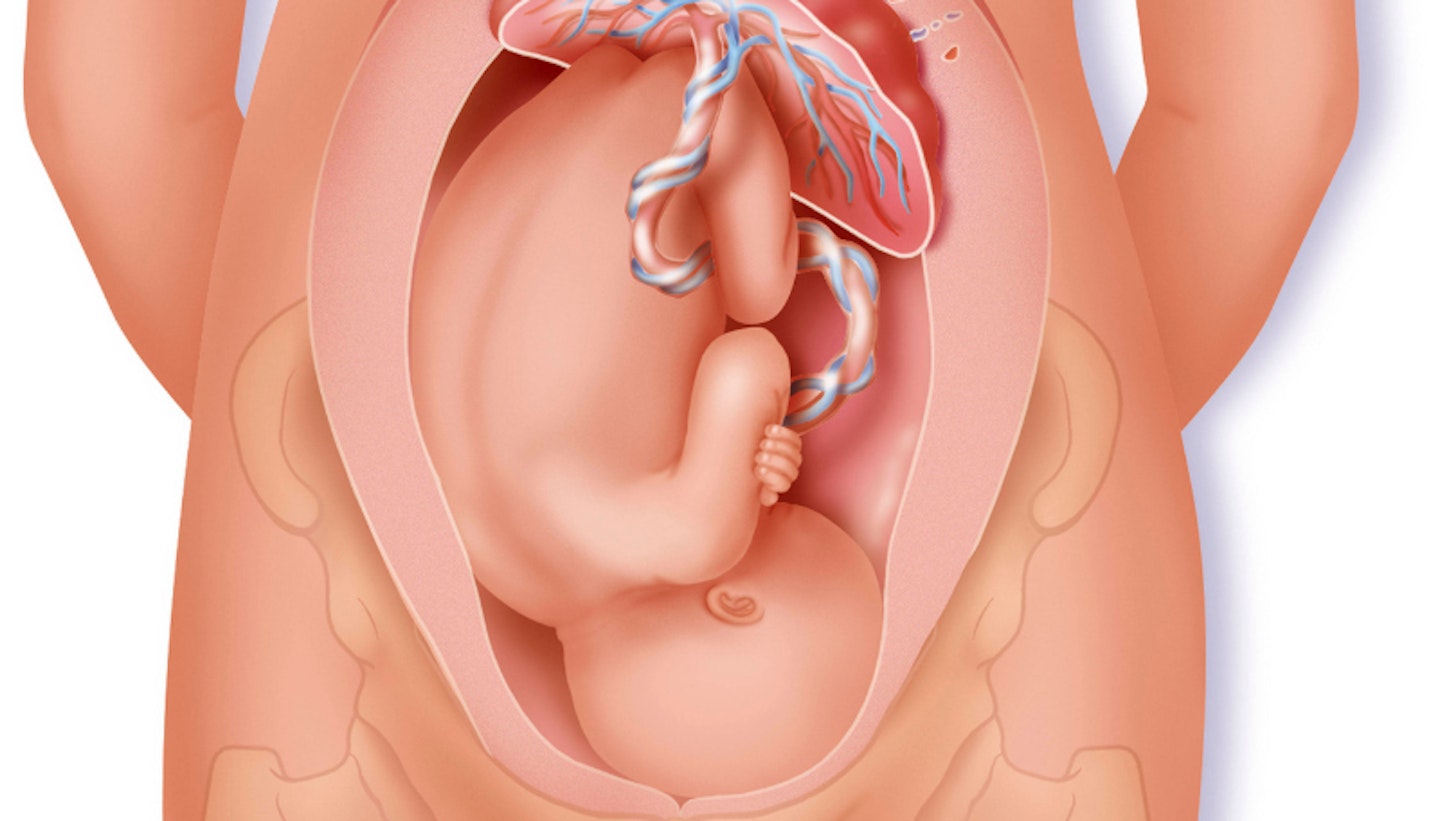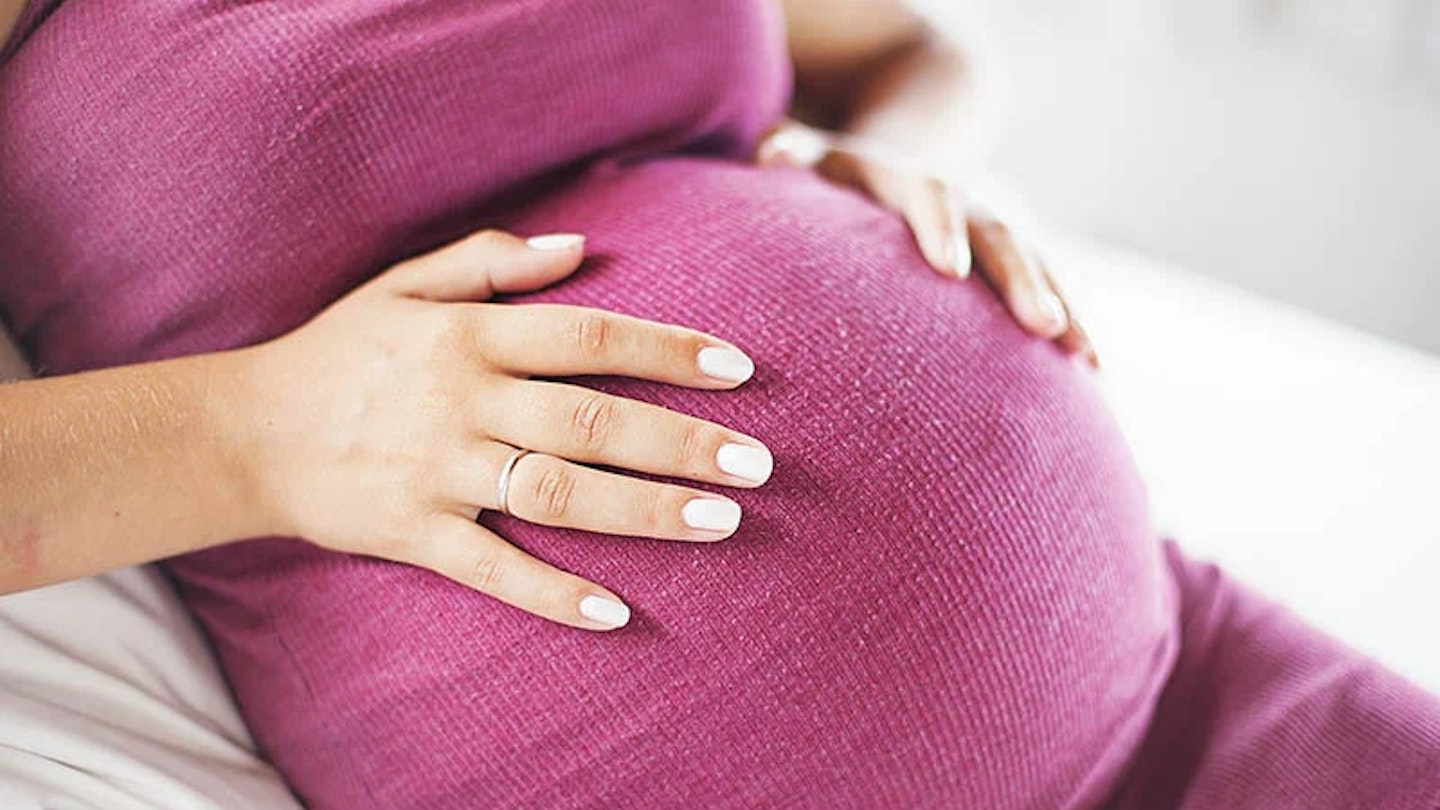
Medically Reviewed by: Dr Shazia Malik
Your third trimester is made up of the last three months of your pregnancy, and starts from week 28. While it may be physically demanding for you, it's a period of incredible growth and development for your baby. They will obtain all five senses, experience rapid brain growth and fully develop their bones and intestines all during your third trimester. Pretty amazing!
Dr Shazia Malik, Consultant OBGYN who runs practices at The Portland says: "The last few weeks of pregnancy can be exciting, exhausting and a time of increasing anxiety or feeling overwhelmed in equal measure - even if you have already given birth previously. It's so important to pace yourself, remember to rest and to prepare yourself mentally, emotionally and physically for your impending delivery."
How long is the third trimester?
Your third trimester will take you right up to labour or week 40 (depending which comes first) and see you through months 7-9 of your pregnancy and last around 13 weeks. You’re nearly there but it all feels so far away, not to mention challenging - especially with a growing bump and various aches and pains to contend with.
What happens in the third trimester?
Your growing bump will really show now and on top of that, your boobs aren’t making life any easier for your back. Practice good posture and try and stick to a regular routine when it comes to eating, sleeping and exercising. Try to sleep on your side with a pillow between your legs and consider the benefits of a pregnancy massage. While it is normal to have an increase in normal vaginal discharge in pregnancy, if it's watery that could be a sign that your waters have gone and should be checked by your midwife.
Your bump pushing on your bladder will make you give up counting how many times a day (and night) you visit the toilet. You might also find that your body is swollen (yup, hands, face, and ankles, the lot!), so while you may consider reducing your water intake, it's vital that you stay hydrated during your third trimester and this will also help to avoid headaches.

You may experience shortness of breath so try and move slowly, stand up and sit up straight so your lungs have more room to do their thing. Along with this, expect cramps or lower back ache in the third trimester, especially if you're bending down to pick up your toddler or give them a bath. You may even struggle to get comfortable on the sofa and even sleeping. It goes without saying that you'll start feeling exhausted so take it easy where possible and put your feet up (literally!) As for baby brain - it happens! Prepare yourself for Braxton Hicks. These false contractions are preparing your body for the real ones so take it as a practice run.
The NHS guidance is that in the third trimester you should now start going to sleep on your side at night (and during any day time naps). This will allow blood to flow easier to your kidneys and uterus. Sleeping on your back in late pregnancy can also double your risk of stillbirth, but sleeping on your side can reduce this risk by half. Don't worry if you wake up on your back though, we can't control how we move when we are asleep, it's just important to go to sleep on your side - this is often the position we spend the longest amount of time in during the night.
When should I worry about my third trimester?
Watch out for the following symptoms to spot pre-eclampsia or any other complications:
• High blood pressure
• Problems with vision
• Severe pain under ribs
• Rapidly increasing swelling of the face, hands or feet
• Severe headache or heartburn that doesn’t go away with usual medicines
Also, look out for signs of gestational diabetesin third trimester too. Gestational diabetes is high blood sugar (glucose) that develops during pregnancy. Symptoms include:
• Severe thirst
• Needing to pee more often than usual
• A dry mouth
• Tiredness
• Blurred eyesight
• Genital itching or recurrent thrush
Dr Shazia says: "Whilst your baby may have less room in the womb to move around, it’s a myth that babies move less as your due date approaches. Your baby should remain active and follow their usual pattern in terms of number of movements, and you should be able to feel your little one‘s movements right up until you go into labour. As such, if you notice any change at all to your baby’s usual pattern, speak to your midwife as soon as possible especially if:
• You have severe abdominal pain or regular painful tightenings/surges
• You experience any form of vaginal bleeding
• Whilst an increase in vaginal discharge is a common and normal symptom of pregnancy, you should contact your midwife if the discharge is unusual in colour, watery, has an unpleasant odour or if you notice any blood in it.
• You feel a trickle or a gush of liquid from your vagina - this could mean that your waters have broken - don't just assume that you have had a leak of urine (which is another common but infrequent symptom in pregnancy)."
Baby’s development in the third trimester
It's hard to believe, but by the end of this trimester your baby will be here. This will be a relief, as the last few weeks can end up being a real struggle for many. Between week 28 to week 40, your baby will be able to:
• By week 28 they will start dreaming and may even be able to see light filtering in through your womb.
• By week 29 they will regularly kick and wriggle around.
• By week 32 they have fully fledged toenails, fingernails and hair: gorgeous!
• By week 34 if your baby is a boy, his testicles will move from his abdomen to his scrotum.
• By week 35 your baby will be the size of a honeydew melon so expect pushes rather than kicks, and you may even see a teeny weeny foot imprint through your bump. Adorable!

• By week 36 your baby's head may engage (drop into your pelvis).
• By week 39 a thick fat layer has been deposited over their blood vessels, making their body extra huggable!
• By week 41 you'll be expecting them but they may not be ready!
• By week 42 your doctor will likely induce you this week. Babies who are overdue may look a little wrinkled when they first arrive but once they start feeding, their skin will return to normal.
Planning in the third trimester
Dr Shazia suggests seeking out help if you feel alone or unsupported and adds that there is no shame in asking. She recommends speaking to your midwife team or GP practice for additional support if needed.
It's also important to engage with your employer, make sure your work environment and hours adapt to your changing needs especially just before maternity leave when things may get even harder. Dr Shazia explains why: "Take time off before your birth to really allow you to be rested and ready in every sense for your birth and beyond. Planning on how you will manage the fourth trimester can sometimes be neglected - and having the right support and resources after your birth are just as crucial to your and your baby's wellbeing. That means involving partners, family and friends as well as any external help for managing your home, family and your health well before the birth so that you can recover from the birth and bond with your baby in a calm and supported environment."
Once you feel a little more supported, you can start preparing for labour, and, no less importantly, life after that. Firstly, don't overwhelm yourself and plan to do a few things every day. You may start getting the urge to nest in pregnancy, so start with prepping your baby’s nursery – it will also be easier on your budget if you spread it out over time. Make sure you buy all the baby essentials: nappies, pushchair, cot, and a car seat.
Make a birth plan and pack your hospital bag. Dr Shazia comments: "If you are practising hypnobirthing, practice daily and involve your birthing partner as this is most effective in helping managing pain in labour. Don't forget perineal massage to reduce the chance of a significant tear during vaginal birth (no need if you are having a planned caesarean section), and staying fit and active during pregnancy. It's just as important to do regular pelvic floor exercises such as Kegels to protect your pelvic floor - a physiotherapist can help with this as well as with aches and pains such as sciatica or SPD. Antenatal classes can be so helpful in preparing for the birth and meeting others locally who are expecting at a similar time to you."
If you’re giving birth in the hospital, plan the route and drive it a few times to check how long it takes. Keep moving - try to go for a short walk, or walk up and down the stairs a few times a day. Stock up on essential food items so you can easily put together a quick meal after you come back home with baby. "Batch cooking and stocking up your freezer can save a lot of time and stress in the weeks after the birth, especially if you are alone in the daytime." explains Dr Shazia.
You should know who your birthing partner will be, and what your plan is for pain management. If you are planning to breastfeed, be prepared with lots of maternity bras, a breastfeeding pillow, and a breast pump. Dr Shazia adds: "Even if you plan to breastfeed it is advisable to have baby bottles and formula in case of any difficulties so that your baby is fed and you aren't stressed trying to make sure they are fed."
Lastly, the final weeks before baby arrives are a precious time to prioritise both physical and mental preparation. Focus on activities that will truly benefit you in the postpartum period. Rest is paramount as is keeping gently active; exercise such as walking or prenatal yoga, can help maintain physical comfort and energy levels. Indulge in relaxing activities like reading, taking a warm bath and spending quality time with your partner or any younger children.
About the experts:
Dr. Shazia Malik gained her medical degree in Obstetrics and Gynaecology in 1991. She has trained in Obstetrics in some of the largest tertiary level units in the country - her specialist training was undertaken in Cambridge, where she was also a research fellow funded by the MRC with a world-famous team looking at abnormal vessel function in women with excessively heavy periods or endometriosis.
Keya Modessa, is our Senior Digital Writer and brings over a decade of experience from the digital realm to Mother&Baby. As a mother of two, Keya understands the joys and challenges of modern parenthood and uses her own experience, to give practical advice. Keya has worked across national publications including glossy women's mags, Food and Travel, and more recently as digital lead for Muddy Stilettos.
Popular articles to read next:
• Your second trimester
• Your first trimester
• Cryptic pregnancy: symptoms, cause and advice
